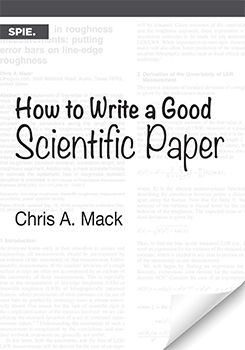|
Plagiarism remains a difficult and important issue in scientific publishing. SPIE, with its many peer-reviewed journals and conference proceeding publications, deals with a number of plagiarism cases each year, ranging from the minor (fixable with editing and education) to the major (sometimes requiring retraction and author sanctions). And even though copying is easier than ever to detect using automated tools such as Similarity Check, the problem persists. Plagiarism is generally defined as taking another’s ideas, images, or words and representing them as one’s own. It is intellectual theft. Despite this seemingly clear definition, in my experience the practice of defining and identifying plagiarism is much more complicated and nuanced. Often, plagiarism is more a consequence of intellectual laziness than intellectual dishonesty. While I want to believe that everyone attempting to write and publish a scientific paper has the same ethical understanding of the concepts of plagiarism as I do, I know this is not the case. So, let us parse our definition of plagiarism and see how it applies to the practices of writing and publishing a scientific paper. |
|
|
-
Journals
- Advanced Photonics
- Advanced Photonics Nexus
- Biophotonics Discovery
- Journal of Applied Remote Sensing
- Journal of Astronomical Telescopes, Instruments, and Systems
- Journal of Biomedical Optics
- Journal of Electronic Imaging
- Journal of Medical Imaging
- Journal of Micro/Nanopatterning, Materials, and Metrology
- Journal of Nanophotonics
- Journal of Optical Microsystems
- Journal of Photonics for Energy
- Neurophotonics
- Optical Engineering
- Photonics Insights
- Ebooks
CITATIONS
Image processing
Process modeling
Brain
Defense and security
Neuroimaging


